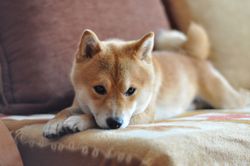4 Reasons Your Sinus Issues Are Worse in Winter

Chronic sinus issues are a nuisance. And during the cold season, you can find yourself dealing with severe flare-ups. There are several causes for winter sensitivity, but by learning what your triggers are, you can hopefully avoid the worst of the symptoms.
The Effects of Winter on Sinus Issues
1. Dry Air
Dry air is a common side effect of cold weather. The mucous linings in your nose dry out, leading to excess production and infections. Fireplaces and heaters also dry out the air in your home, creating similar results. You can combat this by running them minimally and using a humidifier to keep the air moist.
2. Dusty Fabrics
When you pull comfy blankets out for the winter season, they can release irritants that contribute to sinus issues. If these fabrics are dusty, wash them thoroughly before use. Consider deep-cleaning any carpeting or rugs as well.
3. Indoor Pets
 Pet fur and dander are common allergens. When the cold temperatures arrive, pets may spend more time inside, causing more sniffling and sneezing. However, by vacuuming and dusting regularly, you can help reduce these side effects. If you begin to experience severe pain, however, you’ll want to see an ear, nose, and throat doctor for comprehensive care.
Pet fur and dander are common allergens. When the cold temperatures arrive, pets may spend more time inside, causing more sniffling and sneezing. However, by vacuuming and dusting regularly, you can help reduce these side effects. If you begin to experience severe pain, however, you’ll want to see an ear, nose, and throat doctor for comprehensive care.
4. Illnesses
Colds and the flu are prevalent this time of year and they, in turn, can lead to sinusitis. Therefore, avoid those who are sick, wash your hands frequently, and get the vaccine if you have not done so already.
If you’re living with chronic sinus issues, a doctor at Ear Nose & Throat Specialties PC can help. Serving Lincoln, NE, and the surrounding areas, they’ve treated allergies, sinusitis, hearing issues, and related health complications since 1991. Call (402) 488-5600 to schedule an exam or visit their website to learn more about their offerings.
About the Business
Have a question? Ask the experts!
Send your question

